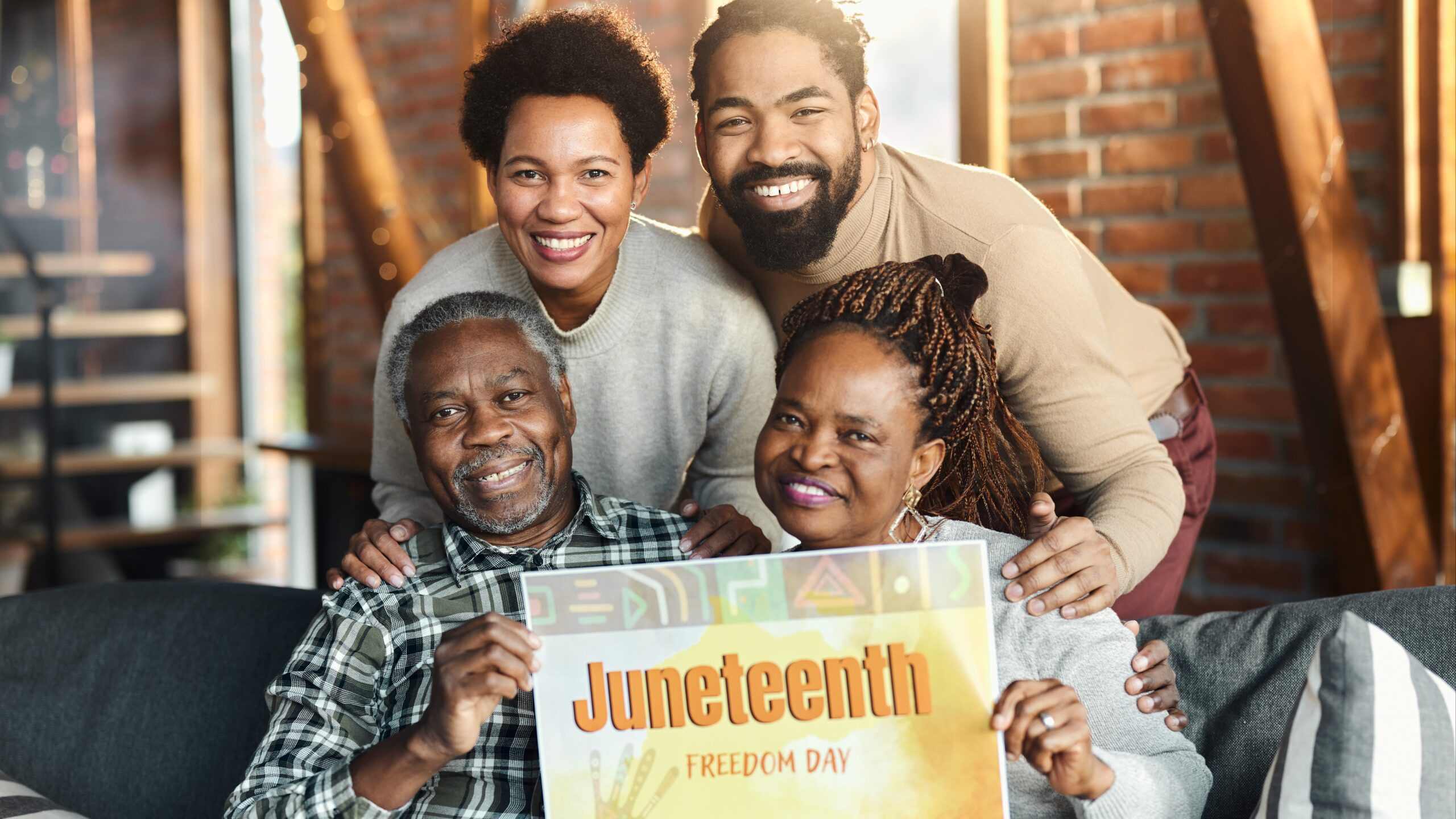
On June 16, 2021, the US Congress passed a bill introduced by President Joe Biden, which established Juneteenth as a federal holiday in the United States. Until the year prior, a lot of Americans knew little about the day of significance, which has been celebrated in the Black community since 1865. A year later, and Juneteenth officially means a day off of work and school for many people, but it's still not a holiday that a lot of people are clear on.
More from MamásLatinas: Everything about Flag Day; meaning, history & how to celebrate it with your family
In short, Juneteenth commemorates the day that the practice of slavery was shut down in the last Texas stronghold more than two years after President Abraham Lincoln signed the Emancipation Proclamation. On June 19, 1865, Union soldiers led by General Gordon Granger arrived in Galveston, Texas, to enforce the release of all slaves.
The day became known as Juneteenth, and has been celebrated in some form — particularly within Black churches — ever since. Many consider it America's true Independence Day, because it was the day that all Americans were officially free. For Latinos in America especially, that should matter.
Here's what you should know about Juneteenth:
The 13th amendment was passed in 1865.
The Emancipation Proclamation was issued on January 1, 1863. It was intended to free all slaves in America, but that's not exactly what happened. Many slave owners completely ignored the decree and many slaves went on not even knowing that they were officially free.
The 13th amendment, was originally presented to Congress in the spring of 1864. The Senate passed it on April 8, 1864, but it failed in the House of Representatives in June.
President Lincoln made it a priority.
The amendment says that, "neither slavery nor involuntary servitude, except as a punishment for crime whereof the party shall have been duly convicted, shall exist within the United States, or any place subject to their jurisdiction."
President Lincoln did not give up. He pushed for the amendment to be added to the Republican party platform during the 1864 presidential election cycle, and when it was presented to Congress again a few months later, it passed. That was on January 31, 1865. Juneteenth didn't occur until six months later.
Juneteenth is hugely significant for Black Americans.
While traditionally, Americans celebrate Independence Day on July 4, many people in the Black community have asserted that because the last slaves were not freed until June 19, 1865, that June 19, is truly Independence Day in America.
It is a day that has been celebrated by Black Americans for over 150 years. "This celebration is a reminder of how strong and resilient we are as a people. We are the descendants of survivors—people who were stolen from their homes and forced to build a new nation for free," explains artist, Devon Blow on Instagram.
It's also known as 'Freedom Day.'
Juneteenth has also traditionally been referred to as "Freedom Day," "Juneteenth Independence Day" and "Emancipation Day." It wasn't recognized or celebrated widely throughout the country, until the tumultuous events of the spring of 2020, when George Floyd and Breonna Taylor were unjustly killed by police officers, among other crimes against Black Americans, and racial tensions heightened.
The Black community gathered and united in protest throughout the country, with much of the activity culminating in June, in conjunction with the celebration of Juneteenth. At that time, references to the holiday surfaced on social media and even on the news.
It's typically a community celebration.
People have traditionally celebrated Juneteenth at community gatherings, barbecues and cookouts, concerts and in some towns and cities, official parades. Most importantly, it is a day to not just celebrate, but also to reflect on our nation's history and the implications of the history of Black Americans and how that history still affects many communities.
Juneteenth should matter to US Latinos too.
It's important as US Latinos that we keep in mind that while many of us are still being persecuted today, that as people of color in this country, we've been subjected to many of the same injustices as Black people throughout American history. In fact, many Latinos are Black and identify as so.
According to the Pew Research Center, as of 2019, at least 2.4 million Latinos in the US self-identified as Black. That's 5% of the Black population in this country, and truthfully, that number is probably on the low side considering that many Latinos still struggle to identify as any one race or any race other than Hispanic or Latino.
Though there is little to no data, we would have been slaves, too. Some of us likely were, considering that colonizers landed in the Caribbean islands before coming to what is now known as the United States, likely bringing slaves with them.
Our futures could have been different.
So many Latinos have African ancestry, and even if we didn't, it only takes one look at how some Americans treat Latinos or even speak about us to know that had slavery not been abolished when it was, had those Union soldiers not ensured that those slaves in Texas were freed, we would likely have ended up in the same fields they worked in.
Many people now feel that Juneteenth is being wrongfully co-opted and commercialized.
Ever since Juneteenth became a holiday in 2021, corporations like Walmart and Target have jumped on the bandwagon with things like Juneteenth merch and Juneteenth sales. For example, Walmart decided to sell a Juneteenth ice cream, while Juneteenth T-shirts and hats have cropped up in big box stores. We've also seen Juneteenth-themed commercials on TV.
A holiday that was once exclusively celebrated in authentic, community-driven ways by the people it is intended to honor, is now being literally sold back to those very people, in cheap and sometimes insulting ways.
"To add insult to injury, all of these products featured the Pan-African flag colors — not the red, white, and blue of the official Juneteenth flag. It only further proves that corporations see Juneteenth as little more than a cash grab," wrote Julia Craven in The Highlight by Vox.
There are better ways to celebrate.
First and foremost, if you haven't already, spend some time educating yourself. Read articles and books about Juneteenth, visit a Black history museum and talk to friends who grew up in communities that have traditionally celebrated it. Find Juneteenth events to attend in your community and do so with respect and an open mind.
You can also honor the day by supporting Black-owned businesses, Black art, and Black authors. Of course, you—can and should—do this any time of year, but Juneteenth is a meaningful time to double down on your support.

